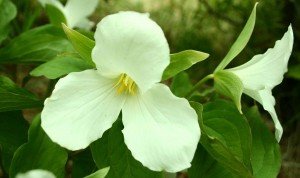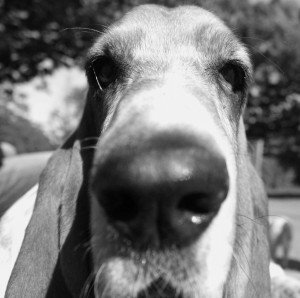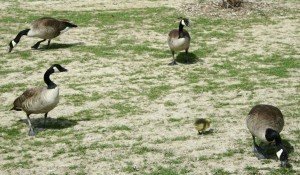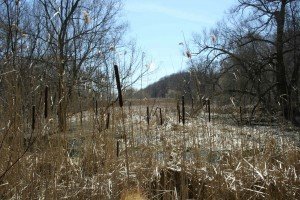Theory of Life, Part 1
I previously posted on the distinction between Life and Nature (at least as it exists for the purposes of this discourse), as well as provided an elaboration on Nature and the Universe, but it is prudent to continue this series by exploring the subject of Life.
Life - a word that we pretend to know, using it in everyday speech, but yet when probed we find ourselves incapable of making the distinction between what is alive and what is not. Is a cut flower still alive, and if so, at what point does it die? If a man's brain is removed while his body is kept functioning we might call him dead, though his body lives on, does it not? If a mountain could feel pain, could we consider it a living thing? Is an amoeba any less alive than a plant, or a plant less alive than a hog? Perhaps we could contextualize life based on the degree of environmental and self-awareness that a thing possesses, but we don't tend to say that a man is more alive than a duck, for being alive is not a thing of degrees so much as it is a state that either is or is not.
What is it that makes the distinction alive between alive, dead, and nonliving? What is life and where does it come from? I shall make a vain attempt to answer these questions. To begin, let's summarize the closest thing that we have to an agreed upon definition of Life: life is capable of self-regulation through some sort of metabolism, is structurally organized, grows, adapts, responds to its environment, and reproduces or self perpetuates. This definition would see self-replicating robots as living and viruses as nonliving as they cannot self replicate, and piggyback reproduction on the structures of living things (like a sand castle that gets rebuilt after the tide comes in it doesn't reproduce, something reproduces it). I am lead to wonder: do viruses not seem to operate with a sense of purpose? Is it strictly a chaotically random happenstance that they exist, thrive, self-replicate, and adapt, or might there be some driving force behind these seemingly purposeful actions? If there is no driving force, and the existence of viruses is strictly chance, what are the odds that they would come to exist, continue to exist for more than a few moments, and come thrive as they do?
This all begs the question: How did life begin? One theory is that a mishmash of the components of life just happened to be hanging around a few billion years ago. These bubbles of lipids and random RNA chains got together and somehow lucked out (or figured out) on ways of seemingly intentional movement, ways to find and use energy sources, and the capacity to make complete copies of themselves. A few billion years of totally random screw-ups in self replication guided by a harsh environment shaped the cells from a mishmash of ingredients that randomly got together into every form of life we see today, and every one that preceded and will proceed them.
Though this is an interesting theory that certainly bears some rationality, it seems a little far fetched to think that random events and mutations guided only by the environment (that being comprised of both the natural environment and the ecosystem) was all that was needed for a beast such as Humankind to arise from a smattering of chemicals. There is also the question of that initial spark; at what point did the randomly organized cluster of compounds become a living thing, and how? What could possibly turn a lifeless pool of chemicals into something intentional, something self-organizing, something driven to adapt and survive? These are not properties that we tend to see in nature, yet we believe them to have risen up from nature; furthermore, we have made little effort to explain how mater came to acquire properties so divergent from its nature.
This change in the nature of nature from wholly lifeless to what we might consider life is by many attributed to a divine being; while this is not quite my sentiment, it is neither incompatible with my thoughts on the subject. Live is intentional; this is not an intrinsic property of matter, and so I believe that intentionality works to distinguish nonliving matter from life. Life searches out food and intentionally turns this food into energy and new life. Not only does it reuse the bio-friendly matter left behind by other life, but is also gradually “incorporates” nonliving matter into part of a greater living system, slowly but surely converting "nature" into "life".
Are we to say that intentionality evolved unintentionally, and that the precursor to life as we know it survived and reproduced strictly as a result of random events? That it made no efforts of any sort to survive, and did so solely by chance? The odds of this seem unfathomably small; it seems more reasonable to assume that life persisted by virtue its disposition to survive, for how could life persist long enough to develop a survival instinct if it wasn't in the least bit motivated towards survival? Was it was purely by chance that the components of life got together, chanced upon energy sources and just happened to reproduce? If not, what was the driving force behind the development and perseverance of life? This I shall explore in Life, Part II.




Are you the original creator of this text? If so, please make it obvious to avoid being downvoted for plagiarism.
Yes, I am the original owner of this text, though am not sure how to make it obvious.. Plan on adding a fourth post in this series (deeper into my notions around the origins and compelling forces of life) when I get some time, but time is hard to find these days..
I upvoted you.
You did not understand life!